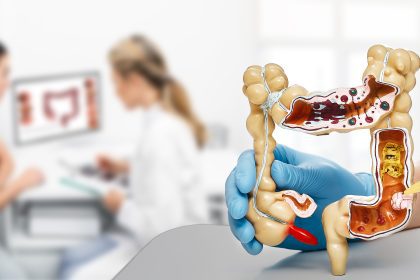When it comes to improving your overall well-being, one overlooked factor could be hiding in plain sight—your sleeping position. While sleep is essential for brain function and immune support, it also plays a surprisingly powerful role in digestion and gut health. The way you lie down at night may either help or harm your digestive system, depending on a variety of factors including posture, gravity and circulation.
Many Americans already suffer from digestive discomfort. Bloating, acid reflux, constipation and even irritable bowel syndrome (IBS) are increasingly common in today’s fast-paced world. But few realize that their nighttime habits could be making these issues worse—or better.
The importance of gut health
Your gut is more than just your stomach. It houses trillions of bacteria and plays a key role in nutrient absorption, immune response and mental health. An unbalanced or inflamed gut can lead to chronic fatigue, mood disorders, skin problems and serious diseases.
Good gut health supports stronger immunity, balanced mood, efficient metabolism, regular bowel movements and reduced inflammation. If you’re waking up bloated, experiencing indigestion overnight or feeling sluggish in the morning, your sleep posture may be part of the problem.
Left-side sleeping benefits digestion
There’s growing research suggesting that sleeping on your left side is one of the most beneficial positions for digestive health. This position is gaining attention in both Western medicine and Eastern traditions like Ayurveda.
When you sleep on your left side, gravity assists the natural movement of waste through your colon. This position encourages food to travel more smoothly from the small intestine to the large intestine, making your morning trip to the bathroom more efficient.
It also positions the stomach and pancreas in a way that promotes optimal enzyme secretion and digestion. With less pressure on the stomach, acid reflux is also less likely to occur.
People suffering from GERD (gastroesophageal reflux disease) often find relief by sleeping on their left side. That’s because this posture reduces the chance of stomach acid traveling upward into the esophagus.
A study published in the Journal of Clinical Gastroenterology found that people who slept on their right side experienced more episodes of acid reflux than those who slept on their left. If you’ve ever woken up with a sore throat or burning sensation, this small shift could make a big difference.
Right-side sleeping considerations
Sleeping on your right side isn’t inherently harmful, but it may not offer the same gut-supportive benefits as left-side sleeping.
When lying on the right side, the esophageal sphincter may loosen slightly, allowing stomach acid to creep up. This can lead to discomfort or even interrupted sleep, especially after a late dinner or spicy meal.
Right-side sleeping doesn’t encourage the same gravitational flow of waste through the intestines. If you’re struggling with constipation or bloating, this posture might be making things harder for your digestive system to stay on track.
Back sleeping: Pros and cons
Sleeping on your back is often praised for spinal alignment, but it may be a double-edged sword for digestion.
On the positive side, back sleeping provides even distribution of weight and may help prevent facial wrinkles and pressure on joints. It can be beneficial for people with neck and back pain.
However, it carries a higher risk of snoring and sleep apnea, can worsen acid reflux and is less effective at supporting bowel movement.
Lying flat on your back can cause stomach acid to rise, particularly if your head is not elevated properly. That’s why many health care professionals suggest using a wedge pillow or slightly elevating the head to minimize discomfort.
Stomach sleeping disadvantages
Stomach sleeping puts pressure on internal organs, including your digestive tract. While some people report that it helps with gas, most experience disrupted sleep or increased discomfort in the long term.
This posture compresses the stomach and intestines, potentially slowing digestion and causing discomfort or gas build-up. It can also strain the lower back and neck, which leads to interrupted sleep and fatigue.
Over time, sleeping on your stomach may lead to posture problems, which can indirectly affect digestion by disrupting nerve flow and circulation to the gut.
Tips for better digestive sleep
You don’t need to overhaul your entire bedtime routine to see benefits. Small changes can have a big impact on how your body processes food and eliminates waste.
To transition to left-side sleeping:
- Use a body pillow to keep your spine aligned and prevent rolling over
- Elevate your head slightly to prevent acid reflux
- Keep knees slightly bent to reduce pressure on the lower back
Create a digestive-friendly night routine:
- Avoid large meals before bed; eat dinner at least three hours before lying down
- Limit spicy or fatty foods that can increase nighttime heartburn
- Stay hydrated, but avoid drinking large amounts right before bed
The mind-gut connection
Your gut and brain communicate constantly through the vagus nerve, a powerful highway of information that influences mood, inflammation and digestion. Poor sleep—whether from stress, poor posture or bad habits—can disrupt this communication.
When your body gets deep, restorative rest in a position that supports digestion, you allow the gut to repair, rebalance and process food effectively.
If you’ve tried adjusting your sleeping position and still struggle with chronic digestive issues, consult a health care provider. Symptoms like chronic heartburn, constipation or unexplained abdominal pain could point to underlying conditions that require treatment.
Your sleeping position may seem like a small detail, but it can make a big impact on how you feel and function. By aligning your sleeping habits with your gut’s needs, you invest in better mornings, smoother digestion and a healthier future.















